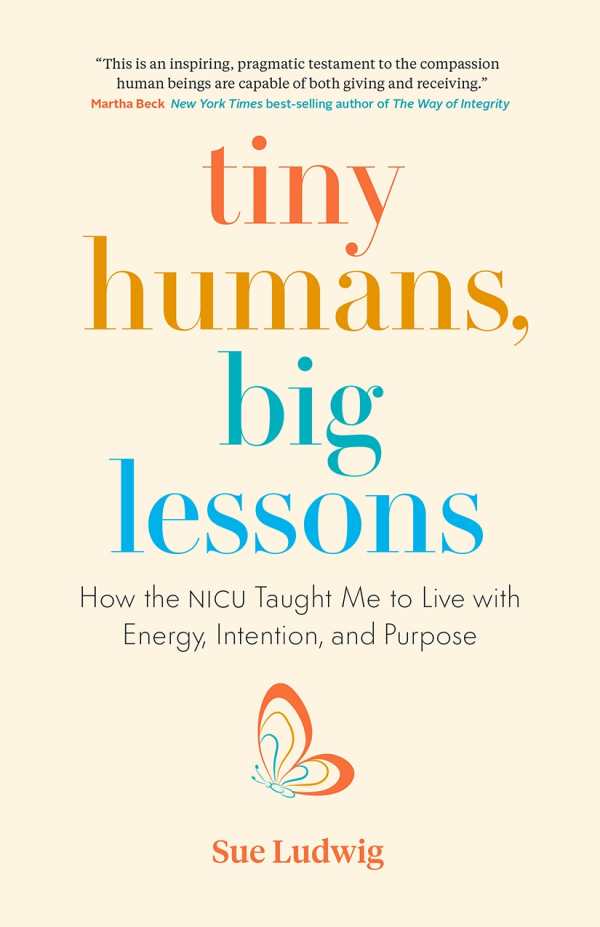Tiny Humans, Big Lessons
How the NICU Taught Me to Live With Energy, Intention, and Purpose
Tiny Humans, Big Lessons is a heartwarming self-help book that argues that, if vulnerable pre-term babies can survive and thrive, we all can.
Part-memoir, part-self-help book, Sue Ludwig’s Tiny Humans, Big Lessons draws everyday lessons from her experiences with NICU babies.
As a wife, mother, and NICU therapist, Ludwig reached a turning point in her life and career when she realized that her constant go-go-go attitude did her more harm than good. She was getting five hours of sleep at night, spending little quality time with her husband and two middle-school-aged children, and was still struggling to pay the bills. After a attending a women’s retreat and founding the National Association of Neonatal Therapists, Ludwig brought balance and meaning back into her life.
As the book’s introduction states, “this is not a healthcare book,” but is instead a self-help guide to living a more intentional life. The book uses lessons learned from infants in the NICU to teach life skills for self-improvement and happiness. For example, by learning to assess a pre-term infant’s stress signals to address necessary changes to their environment, Ludwig learned to look at her own and others’ body language and lifestyle behaviors, and to appraise the viability of her choices and the need for a break. And just as NICU doctors use a baby’s gestational age to determine how well they’re doing, rather than their age from the day they were born, the book says that adults can and should consider themselves to be works in progress, comparing themselves to their past selves, rather than to others, to judge their successes.
Within each chapter, though the content skips between ideas and examples, the threads come together to form a unified message. By beginning with discussions of moods and emotional energy, then moving toward narrower, more practicable topics like setting intentions, the book develops and builds on its themes in a logical fashion. Some analyses of concepts like “energy” are vague and focus on the abstract, but when the narrative’s concrete examples mirror those nebulous ideas, they become tangible. Straightforward language is used to define important words like “intention” in specific, accessible terms. The forthright, unapologetic, and sympathetic tone is consistent throughout, reflecting genuine care and a desire to help others.
While much of the book uses storytelling to convey the Ludwig’s lessons, the inclusion of succinct, step-by-step instructions for learning to evaluate one’s priorities, and to set intentions, elevates the self-help angle of the text. The book’s suggestions for calculated questions to ask oneself in building a self-reflective practice, for instance, are pointed, candid, and easy to adapt to different life circumstances. Though these ideas and procedures may not be profound or innovative in the world of self-help guides, the book’s theme-driven narrative and affecting examples make it inspiring.
Tiny Humans, Big Lessons is a heartwarming self-help book that shows that if a vulnerable pre-term baby can survive and thrive, then we all can.
Reviewed by
Aimee Jodoin
Disclosure: This article is not an endorsement, but a review. The publisher of this book provided free copies of the book and paid a small fee to have their book reviewed by a professional reviewer. Foreword Reviews and Clarion Reviews make no guarantee that the publisher will receive a positive review. Foreword Magazine, Inc. is disclosing this in accordance with the Federal Trade Commission’s 16 CFR, Part 255.

